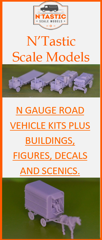- Welcome to N Gauge Forum.
China virus and production woes.Started by trkilliman, February 05, 2020, 07:38:59 AM Previous topic - Next topic0 Members and 1 Guest are viewing this topic.
User actions
| Please Support Us!
July Goal:
£100.00 Due Date: Jul 31 Total Receipts: £23.45 Below Goal: £76.55 Site Currency: GBP 23% July Donations |







